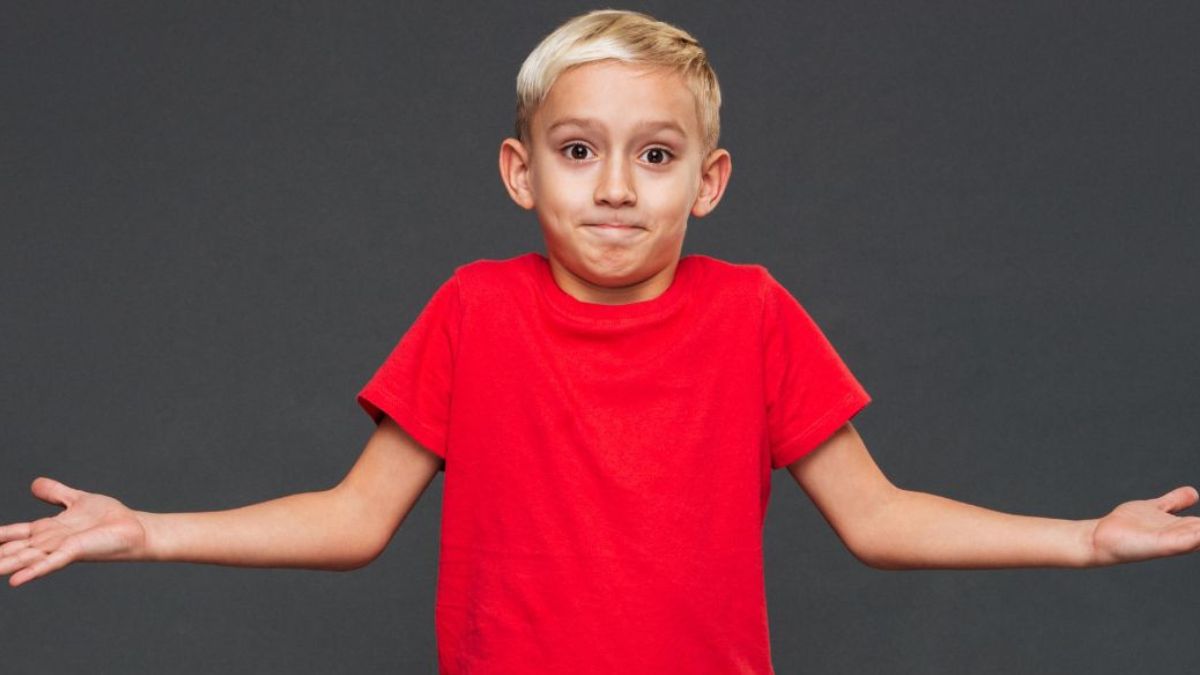Captivating Book, Movie, and TV Characters on the Spectrum

Portrayal of Characters on the Autism Spectrum in Media
The portrayal of characters on the autism spectrum in movies, TV shows, and books has evolved over the years, reflecting a changing understanding of the spectrum. In the past, portrayals often focused solely on the challenges faced by individuals on the autism spectrum. However, recent works have made efforts to showcase their strengths, abilities, and unique perspectives as well.

Evolution of Autism Representation in Movies, TV, and Books
The representation of autism in media has come a long way. Earlier works tended to present characters with autism in a one-dimensional manner, emphasizing their difficulties in social interaction, communication, and understanding social cues. These portrayals often perpetuated stereotypes and contributed to a limited understanding of the spectrum.
In recent years, there has been a shift towards more nuanced and authentic depictions of characters on the autism spectrum. This evolution in representation aims to provide a more realistic portrayal of the diverse experiences of individuals on the spectrum. It recognizes that autism is a spectrum, with a wide range of abilities, challenges, and characteristics.
Balancing Challenges and Strengths in Depicting Autism
Modern portrayals of characters on the autism spectrum strive for a balance between highlighting the challenges they face and showcasing their strengths and capabilities. This approach reflects a more comprehensive understanding of autism as a complex and multifaceted condition.
By showcasing the strengths of autistic characters, such as their unique perspectives, attention to detail, and exceptional memory, these portrayals challenge the stereotypes and misconceptions that have been perpetuated in the past. They contribute to a more accurate and inclusive representation of the autism spectrum.
Criticism and Advocacy for Authentic Representations
While progress has been made in the portrayal of characters on the autism spectrum, there have also been instances of misrepresentation and stereotyping in movies, TV shows, and books. Such portrayals can further stigmatize and marginalize individuals on the spectrum, reinforcing misconceptions and hindering understanding and acceptance.
As a result, there has been increased advocacy for more authentic and diverse representations of autism in media. Autistic individuals and advocacy groups emphasize the importance of accurate, respectful, and multidimensional depictions of characters on the autism spectrum. By promoting understanding and acceptance, these representations can help foster a more inclusive society.
By continually challenging stereotypes and striving for authentic portrayals, the media can play a vital role in raising awareness, promoting empathy, and highlighting the experiences of individuals on the autism spectrum.
Notable Characters on the Autism Spectrum in Books, Movies, and TV Shows
Books, movies, and TV shows have played a significant role in increasing awareness and understanding of autism spectrum disorder. Through the portrayal of characters on the autism spectrum, these forms of media have shed light on the experiences and challenges faced by individuals with autism. Here are some notable characters that have made an impact:
Raymond Babbitt from "Rain Man"
The 1988 movie "Rain Man" starring Dustin Hoffman and Tom Cruise brought autism to public attention and received critical acclaim. Hoffman's portrayal of Raymond Babbitt, an autistic character with exceptional memory and numerical skills, earned him the Academy Award for Best Actor. The movie successfully highlighted the unique strengths and challenges faced by individuals on the autism spectrum.
Adam from the movie "Adam"
The 2009 movie "Adam," featuring Hugh Dancy, provides a more realistic portrayal of an individual with Asperger's syndrome. The film delves into the life of Adam, a character on the autism spectrum, as he navigates relationships and strives for independence. The movie offers a sensitive and nuanced depiction of the challenges faced by individuals with autism.
Sam from the TV show "Atypical"
The TV show "Atypical," which premiered in 2017, centers around Sam, a teenage boy with autism. The series delves into Sam's journey of self-discovery and his experiences navigating relationships, school, and family dynamics. "Atypical" gained popularity for its authentic representation and has contributed to a better understanding of the complexities of autism spectrum disorder [1].
Abed Nadir from the TV show "Community"
Abed Nadir, a character from the TV series "Community," is often described as having Asperger's syndrome. Portrayed by Danny Pudi, Abed showcases unique characteristics associated with autism spectrum disorder. His analytical thinking, difficulty understanding social cues, and passion for pop culture provide a glimpse into the diverse experiences of individuals on the spectrum.
Temple Grandin and Her Books
Temple Grandin, an American author, animal behavior expert, and autism advocate, has written several books about her personal experiences with autism. Her books, including "Thinking in Pictures" and "The Autistic Brain," provide valuable insights into the world of autism from her own perspective. Grandin's work has not only educated people about autism but has also inspired individuals on the spectrum to embrace their unique strengths and talents.
These characters and their stories have played a significant role in increasing awareness, understanding, and acceptance of autism spectrum disorder. By showcasing a range of experiences, challenges, and strengths, these representations have contributed to a more inclusive and empathetic society.
Diversity and Inclusion in Autism Representation
As the portrayal of characters on the autism spectrum in books, movies, and TV shows has gained attention, discussions surrounding diversity and inclusion have emerged. It is important to address the lack of representation for people of color, the impact of stereotypes and inspiration porn, the exaggeration and misrepresentation of autistic traits, and the shift from focusing on tragedy to acceptance.
Lack of Representation for People of Color on the Autism Spectrum
One notable concern within the portrayal of autism in media is the lack of representation for people of color. The majority of autistic characters depicted in movies, TV shows, and books are often white men, which does not accurately reflect the diversity within the autism community. This lack of representation can be discouraging for people of color, as it may hinder their ability to identify with and seek support for autism.
Impact of Stereotypes and Inspiration Porn
Autistic individuals and advocacy groups have emphasized the importance of accurate, respectful, and multidimensional depictions of characters on the autism spectrum. Stereotypes and inspiration porn, which present individuals with autism solely as savants or solely focused on their disability, can perpetuate misconceptions and hinder understanding and acceptance. It is crucial to move beyond these limited portrayals and showcase the diverse range of strengths, challenges, and experiences of individuals on the spectrum.
Exaggeration and Misrepresentation of Autistic Traits
In some portrayals, autistic traits may be exaggerated or misrepresented, leading to misconceptions and misunderstandings. It is important for media to accurately represent the broad spectrum of autism and avoid sensationalizing or oversimplifying the condition. By providing more nuanced and realistic depictions, media can contribute to increased awareness, empathy, and understanding of autism.
Shifting Focus from Tragedy to Acceptance
Traditionally, characters with autism in media were often depicted through a tragic lens, focusing solely on the challenges they face. However, there is a growing recognition of the need to shift the narrative towards acceptance and showcasing the strengths and abilities of individuals on the spectrum. By highlighting the unique perspectives and talents of autistic characters, media can foster a more inclusive and understanding society.
The discussions and recommendations on platforms like Reddit reflect a broader societal push for more diverse and authentic portrayals of individuals with autism spectrum disorders in books, movies, and TV shows. This indicates a growing awareness and advocacy for inclusivity in entertainment content, promoting understanding and acceptance of autism. It is through these conversations and efforts that media can play a vital role in shaping public perception and promoting a more inclusive society.
Engaging Discussions and Recommendations on Reddit
Reddit serves as a vibrant platform for engaging discussions and recommendations about movies featuring characters on the autism spectrum. The community on Reddit has created a space where users can share their thoughts and insights, promoting understanding and awareness through film.
Reddit as a Space for Autism Movie Recommendations
Users on Reddit have actively participated in conversations surrounding movies that prominently feature characters with autism. The platform provides a unique opportunity for individuals to recommend films and engage in discussions about the portrayal of autism in popular media [4].
By sharing their recommendations, Reddit users contribute to a dialogue that promotes inclusivity, empathy, and accurate representation of individuals with autism spectrum disorders. These discussions can potentially lead to more informed viewing choices and increased understanding of autism spectrum disorders [4].
Promoting Understanding and Awareness Through Film
The engagement on Reddit regarding movies with obviously autistic characters reflects a broader societal push for more diverse and authentic portrayals of individuals with autism spectrum disorders in books, movies, and TV shows. This indicates a growing awareness and advocacy for inclusivity in entertainment content.
By discussing and recommending movies that prominently feature characters with autism, Reddit users contribute to a dialogue that promotes understanding and acceptance. These conversations help to challenge stereotypes and encourage accurate portrayals of individuals on the autism spectrum. By showcasing the diverse experiences and perspectives of individuals with autism, these films foster empathy and create opportunities for meaningful conversations about neurodiversity.
Contributions to Inclusivity and Empathy
The discussions and recommendations on Reddit around movies with obviously autistic characters reflect the efforts of autistic individuals and advocacy groups who emphasize the importance of accurate, respectful, and multidimensional depictions of characters on the autism spectrum. These efforts aim to promote understanding, acceptance, and inclusivity for individuals with autism spectrum disorders.
Through their engagement on Reddit, users play a significant role in shaping the narrative around autism representation in media. By recommending films and sharing their thoughts, Reddit users contribute to a more diverse and authentic portrayal of characters on the autism spectrum. This collective effort fosters a greater understanding of autism and promotes empathy within the wider community.
The active discussions and recommendations on Reddit demonstrate the impact that online communities can have in shaping perceptions and advocating for accurate and inclusive representations of individuals on the autism spectrum.
Diversity and Inclusion in Autism Representation
When it comes to the portrayal of characters on the autism spectrum in books, movies, and TV shows, it is essential to consider the importance of diversity and inclusion. While media has made progress in representing autism, challenges still exist in creating authentic and inclusive portrayals. Let's explore some of these issues.
Lack of Representation for People of Color on the Autism Spectrum
The majority of autistic characters in media are often portrayed as white men, which does not accurately reflect the diversity within the autism community. This lack of representation can discourage people of color from seeking support for autism and contribute to feelings of alienation and invisibility.
Impact of Stereotypes and Inspiration Porn
Many autism-related media have depicted autistic characters as inspirational figures who overcome their disabilities. This portrayal reinforces the idea that autism is a negative experience that limits people, which is known as "inspiration porn". This focus on overcoming challenges can perpetuate the notion that autistic individuals are only valuable if they can overcome their autism, rather than embracing and accepting their inherent worth.
Exaggeration and Misrepresentation of Autistic Traits
Autistic characteristics are often exaggerated and portrayed in an extreme, stereotypical manner in media. This can lead to the misconception that all autistic people act in an irritating or self-centered manner. Such misrepresentations can negatively impact autistic individuals' self-esteem and perpetuate misunderstandings about autism [3].
Shifting Focus from Tragedy to Acceptance
In the past, autism representation in media often focused solely on the challenges faced by autistic individuals. However, recent works have made efforts to showcase their strengths and capabilities as well. Shifting the narrative from tragedy to acceptance is crucial in creating more inclusive and accurate depictions of characters on the autism spectrum [1].
It is important to recognize the impact that media has on shaping perceptions and understanding of autism. Advocacy groups and autistic individuals have emphasized the significance of accurate and respectful portrayals, calling for more diverse and multidimensional characters on the autism spectrum. By promoting understanding and acceptance through authentic representation, media can contribute to a more inclusive society [1].
References
Similar articles
Contact us today to learn more.




.jpg)

.jpg)





